Food Intolerance & Allergy Tests
Find out if you are intolerant to over 200 food and drink ingredients including Lactose and Gluten
Why Get Tested?
Food intolerances and allergies can drastically reduce your quality of life, so getting tested allows you to make informed decisions about your diet to improve your wellbeing.

Of people in the UK have a food sensitivity

People in the UK suffer with an allergy
Finding Answers
It’s believed that nearly half of everyone living in the UK today has a food sensitivity. Yet, despite the huge number of sufferers, the world of allergies and intolerances is relatively uncharted.
Not only do many people not understand why they are suffering, but they become so habituated to their conditions that they neglect to seek help.
What’s more, those who do seek out more information often find themselves unable to access the resources that they need.
The support simply has not been there – and this is something we are hoping to change.
What Causes Intolerances & Allergies?
Be it genetic predisposition, environmental factors, immune function, the aftermath of illness, lifestyle choices and more, all sorts of elements can have an impact on how your body reacts to certain foods. Similarly, the symptoms can differ in extremis from person to person, with some people experiencing short bouts of intense discomfort and pain, and others experiencing mild yet prolonged irritation.
Why is testing important?
Many health issues as a result of food allergies and intolerances occur without the person being fully aware. This is a problem. Some people experience food sensitivities or allergies in their childhood and for others, these symptoms will occur suddenly and much later on in life. If the symptoms have been ignored, or just not identified, this can lead to much bigger problems down the line. Ultimately, there will be a point when the body can no longer deal with the strain anymore and becomes much more susceptible to fatigue, viruses and general ill-health.
Why are our tests different?
Combating the gap in the study of nutrition and the availability of food allergy and intolerance testing, we have developed a series of tests that allow individuals to really understand their own needs. As much as each individual thinks, behaves and reacts differently, so too do our organs and internal systems. This is why, as every individual is unique, so too must be the assessment and treatment. With our food allergy and intolerance tests, we can look at all the symptoms so as to begin identifying the cause. To find out more information and take the first steps to a happier, healthier and more comfortable life, buy your test or get in contact with us today.
What If I am worried about my Child?
Are You Suffering?
Intolerance
Food intolerance is a digestive system response rather than an immune system response. It occurs when something in food irritates a person’s digestive system or when a person is unable to properly digest, or break down, the food. Intolerance to lactose, which is found in milk and other dairy products, is the most common food intolerance.
If you have these symptoms, you may be suffering from a food intolerance:
- Nausea
- Stomach Pain
- Gas & Cramps
- Bloating
- Vomiting
- Heartburn
- Diarrhoea
- Headaches
- Irritability or Nervousness
Allergy
A food allergy is an immune system response. It is caused when the body mistakes an ingredient in food — usually a protein — as harmful and creates a defense system (antibodies) to fight it. An allergic reaction occurs when the antibodies are battling an “invading” food protein. The most common food allergies are shellfish, nuts, fish, eggs, peanuts, and milk.
If you have these symptoms, you may be suffering from a food allergy:
- Rash or Hives
- Nausea
- Cramping stomach pain
- Diarrhoea
- Itchy Skin
- Shortness of breath
- Chest pain
- Swelling of the airways
Our Best Value Test Bundle For Food Intolerances & Allergies
Take the stress out of food and drink, and perfect your lifestyle by knowing which foods you’re intolerant and/or allergic to.
- It’s simple, quick and straightforward, just take a finger-prick blood sample and post back to us to test.
- Results given within 3-5 working days.
What do we test for?
Allergies
Foods
Egg White, Milk, Cod, Salmon, Crab, Shrimp, Pork, Beef, Chicken, Lamb, Wheat, Rice, Soy, Potato, Hazelnut, Almond, Tomato, Carrot, Orange, Strawberry, Apple, and Peach
Environmental
Birch, Hazelnut pollen, Olive, Cypress, Ash (european), Timothy grass, Rye, Bermuda grass, Bahia grass, Coomon ragweed, Mugwort, English plantain, Cat dander, Horse dander, Dog dander, House dust mites (D. pteronyssinus and D. farinae), Cockroach, and Cladosporium herbarum.
Intolerances
Key Ingredients
Almond, Cows Milk, Gluten, Pork, Yeast, Beef, Egg White, Coffee, Egg Yolk, Peanut and Wheat.
Fish/Shellfish
Abalone, Anchovy, Cod, Crab, Cuttlefish, Eel, Haddock, Herring, Lobster, Mackerel, Mussel, Oyster, Plaice, Prawn, Salmon, Sardines, Scallops, Shrimp, Sole, Trout, Tuna and Vendance.
Grains
Buckwheat, Corn (maize), Dinkel Flour (spelt), Gliadin (gluten), Hops, Malt, Millet, Oat, Quinoa, Rice, Wheat and Wheatgrass.
Meat
Beef, Chicken, Deer, Duck, Goat, Lamb, Pheasant, Pork and Turkey.
Vegetables
Asparagus, Aubergine (eggplant), Beansprouts, Beetroot, Bok Choi, Broccoli, Cauliflower, Cabbage, Carrot, Celery, Kale, Lettuce, Lotus Root, Mushroom, Onion, Parsnip, Peppers (capsicum), Swede, Spinach, Swede, Sweet Potato, Turnip and Water Chestnut.
Drinks
Acai Berry, Burdock Root, Chamomille, Coffee, Cows Milk, Elderberry, Elderflower Mix, Ginseng (korean), Ginseng (siberian), Goats Milk, Grape (cabernet sauvignon), Grape (chardonnay), Grape (concord), Grape (malbec), Grape (merlot), Grape (pinot grigio), Grape (red zifandel mix), Grape (riesling), Grape (sauvignon blanc), Grape (syrah/shiraz), Grape (white zifandel), Green Tea, Guarana, Hibiscus, Rooibos, Rosehip, Sheeps milk, and Tea.
Fruit
Apple, Apricot, Avocado, Bilberry, Blackberry, Blackcurrant, Blueberry, Boysenberry, Cherry, Cloudberry, Coconut, Cranberry, Cucumber, Goji Berry, Grapefruit, Kiwi, Lime, Lingonberry, Lychee, Mango, Mulberry, Olive, Orange, Papaya, Peach, Pear, Pineapple, Pomegranate, Prune, Pumpkin, Raspberry, Strawberry, Tamarind and Tomato.
Herbs And Spices
Agar Agar, Anise Seed, Basil, Bayleaf, Cardamom, Cassia, Chilli Pepper, Cinnamon, Clove, Coriander, Cumin, Curry Leaves/Curry Powder, Dill, Garlic, Ginger, Jasmine, Juniper Berry, Lemongrass, Mint, Mustard Seed, Nutmeg, Paprika, Parsley, Peppercorn, Saffron, Sage, Thme, Turmeric, and Vanilla.
Nuts And Plants
Agave, Almond, Aloe Vera, Bamboo, Brazil Nut, Carob, Cashew Nut, Chia Seed, Chickpea, Cocoa Bean, Cola Nut, Flax (linseed), Hazelnut, Hemp, Nettle, Oak, Okra, Peanut, Rocket (arugula), Sesame Seed, Seaweed, Spirulina, Sunflower Seed, Tamarind, Tapioca and Walnut.
Beans/Legumes
Haricot Bean (baked bean), Kidney Bean, Lentil, Pea, Peanut, Spring Bean, Soybean.
From The Expert
“The topic of food intolerances is very complex, and it can often be overlooked in a client’s or patient’s assessment. As a doctor and GP myself, I know that not many doctors study nutrition, so food intolerances are often overlooked.
There are many instances when people fail to detect food intolerances, which leads to unnecessary health issues. Every person is unique.”
Dr Joachim Stolte, MD, Ph. D, MRCGP.
How It Works
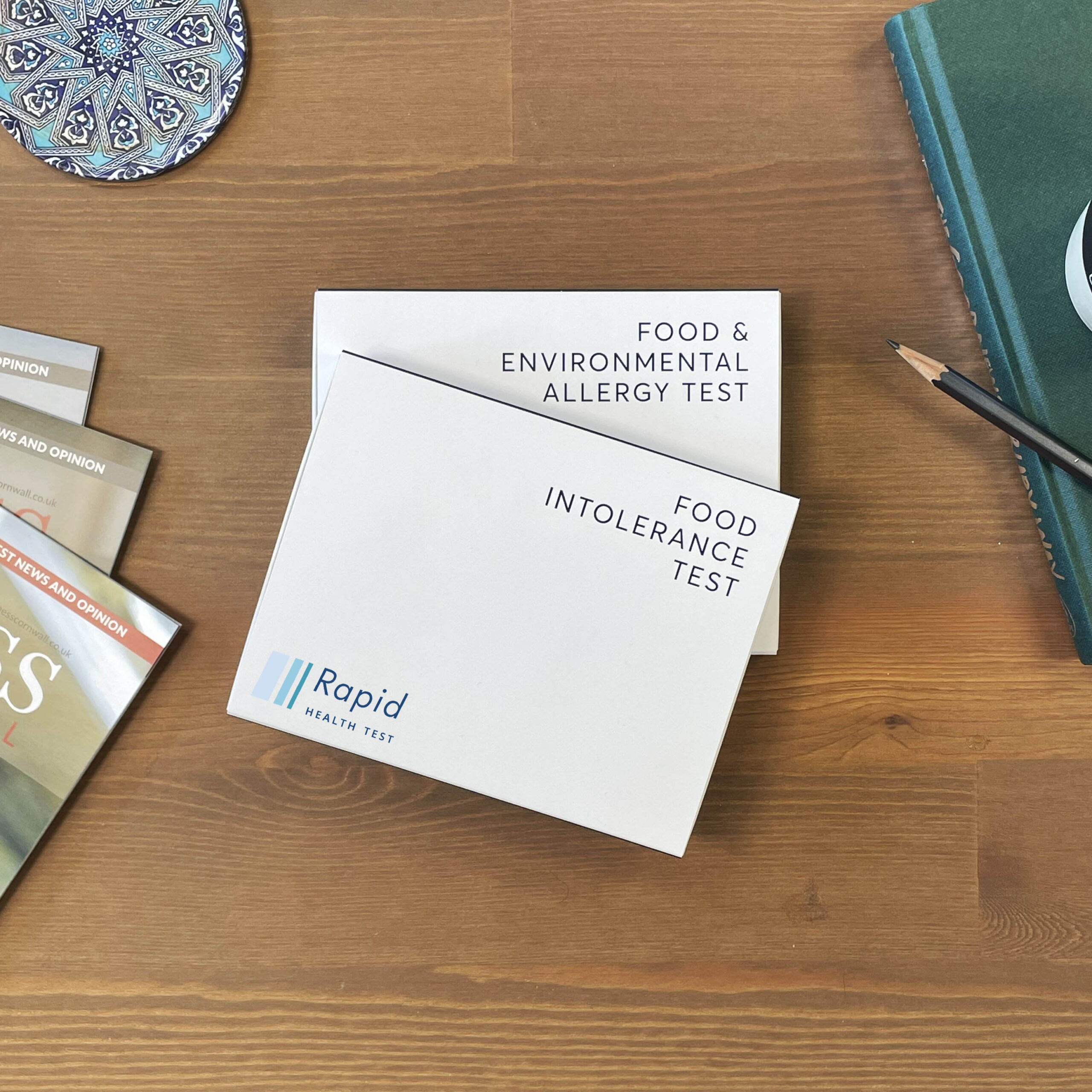
1.
Place your order, and we’ll post it to you directly.

2.
Take a finger prick test and collect 2-3 drops of blood, and post back to our laboratory.

3.
Receive and review your results, in a simple, easy to understand way.
Choose Your Test
-
Sale!
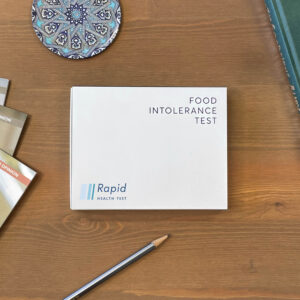
Premium Food Intolerance Test
Original price was: £199.00.£139.00Current price is: £139.00. -
Sale!
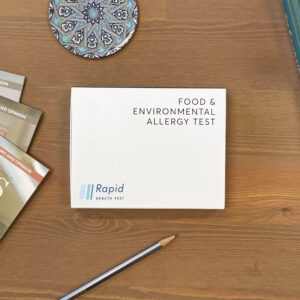
Food Allergy Test
Original price was: £199.00.£139.00Current price is: £139.00. -
Sale!
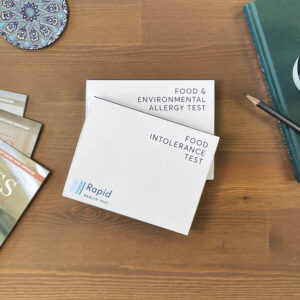
Food Allergy & Intolerance Test Bundle
Original price was: £299.00.£249.00Current price is: £249.00. -
Sale!
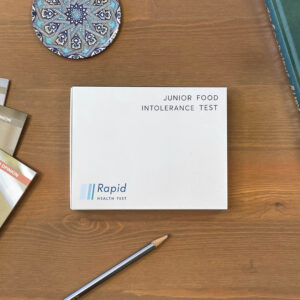
Junior Food Intolerance Test
Original price was: £199.00.£139.00Current price is: £139.00.







